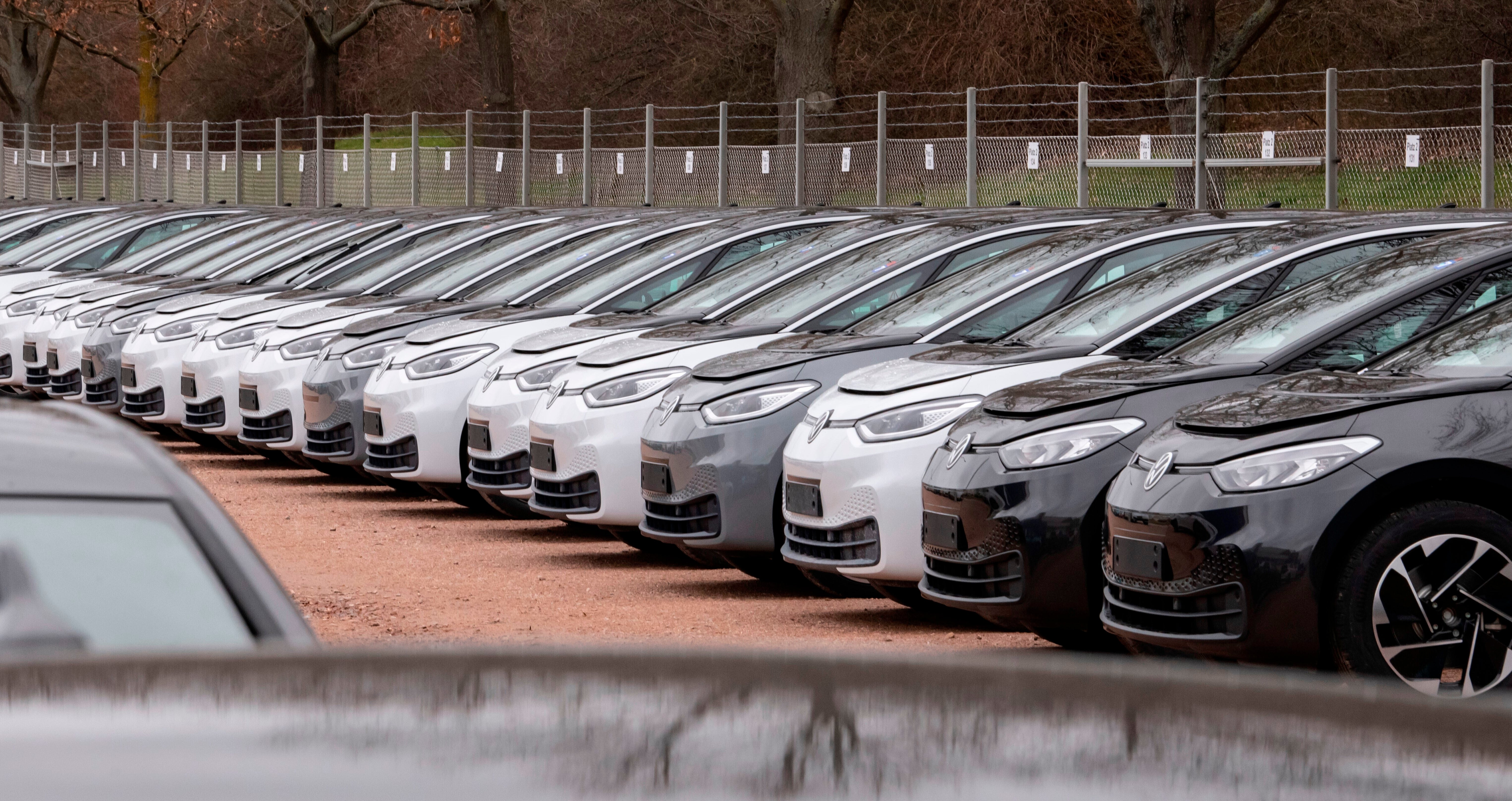Volkswagen triples E-car sales ahead of new climate rules
It's already shaping up to be a year of the electric car in Europe

Your support helps us to tell the story
From reproductive rights to climate change to Big Tech, The Independent is on the ground when the story is developing. Whether it's investigating the financials of Elon Musk's pro-Trump PAC or producing our latest documentary, 'The A Word', which shines a light on the American women fighting for reproductive rights, we know how important it is to parse out the facts from the messaging.
At such a critical moment in US history, we need reporters on the ground. Your donation allows us to keep sending journalists to speak to both sides of the story.
The Independent is trusted by Americans across the entire political spectrum. And unlike many other quality news outlets, we choose not to lock Americans out of our reporting and analysis with paywalls. We believe quality journalism should be available to everyone, paid for by those who can afford it.
Your support makes all the difference.Automaker Volkswagen tripled sales of battery-only cars in 2020 despite the pandemic as its new electric compact ID.3 came on the market ahead of tough new European Union limits on auto emissions.
It's an early sign of what will likely be an upcoming year of increasing market share for electric cars as EU regulations drive their adoption despite the economic upheaval caused by the COVID-19 outbreak, and as the EU's largest economy, Germany, sees more demand.
Volkswagen said Tuesday its namesake brand sold 134,000 battery powered cars last year, up from 45,000 in 2019.
Including hybrids, which combine an internal combustion engine and an electric motor, sales of electrified cars reached 212,000, up from 82,000 in 2019.
Volkswagen's announcement comes as the auto industry association in Germany, which had lagged in electric adoption, reports that one in four cars sold in the country in December had an electric motor, uptake that was supported by incentives as part of the government stimulus package during the pandemic recession.
Battery and hybrid cars took 26.6% of sales that month, running ahead of diesel cars, which had 26.2%. That is also a token of diesel's steep decline after Volkswagen's 2015 scandal involving diesel cars rigged to cheat on emissions tests.
Electric cars have so far been a small but rapidly growing slice of the European market.
Automakers in the EU must sell more zero-emission cars in order to meet tougher fleet average limits on emissions of carbon dioxide, the primary greenhouse gas blamed for climate change. Those limits came fully into effect on Jan. 1. Failure to achieve a fleet average of less than 95 grams of carbon dioxide per kilometer driven can mean heavy fines.
Sales have been driven by government incentives, and by an increasing number of new models that like the ID.3 were designed purely as electric cars, rather than being converted from internal combustion models.
Demand has been held back by lack of places to charge electric cars, including for people who live in apartment buildings and can't install a charging box at home. Germany's auto association, the VDA, said there's only one publicly available charging station for every 17 electric cars.
California-based Tesla has been a major factor in the electric upswing with its Model 3 and proprietary network of fast-charging stations.